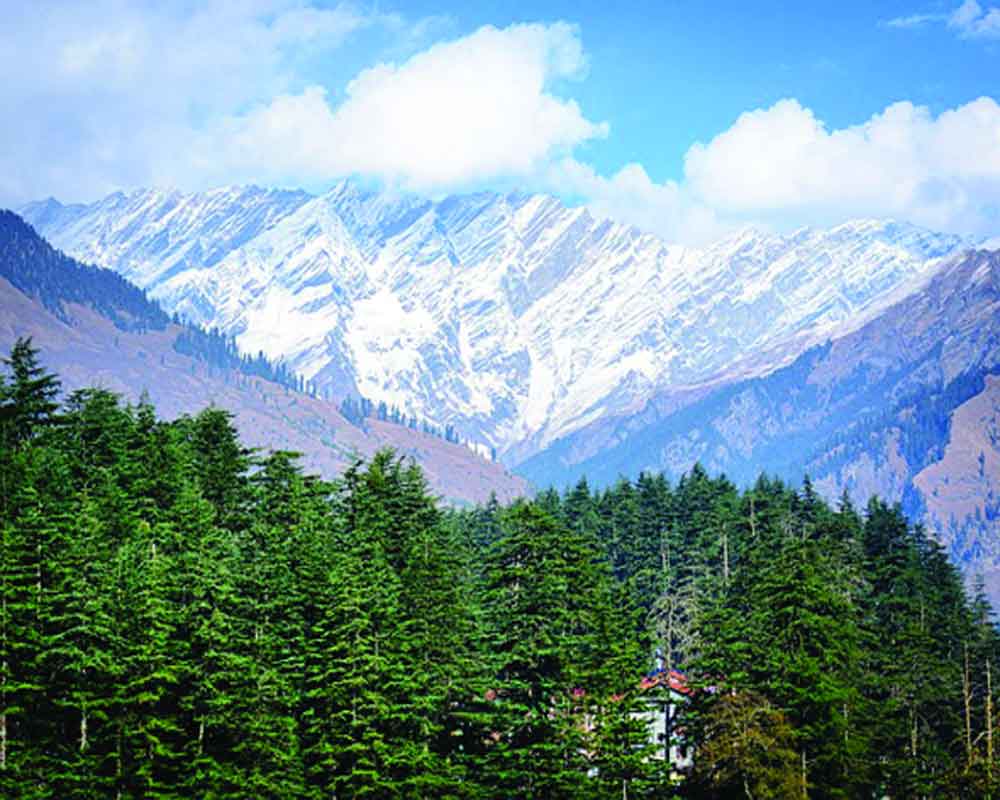Establishing ‘snow reserves' can significantly contribute to the preservation of the Himalayan ecosystem
Snowfall brings cheers to people residing in the Himalayan states, as it brings money to its economy through tourism-related activity. But this year, many regions of the Himalayas that used to harbour snow from December to January have been bereft of any snow so far. Popular tourist destinations like Shimla, Manali, and Gulbarg have no active snowfall. This drastically declined the number of tourists visiting these places, affecting the local economy. The temperatures at Shimla and Manali were warmer than in the national capital region during January. Even though there are no official statements from the India Meteorological Department (IMD) regarding the decline in snowfall, even a layman's observation will reveal that something is wrong with our climatic patterns, scientists may come up with many theoretical explanations related to global climatic changes, but accurate scientific studies based on local climatic problems are lacking.
Snowfall occurs when moisture in the atmosphere freezes into ice crystals and falls to the ground. It's important to note that the conditions in the atmosphere, such as temperature and humidity, play a crucial role in determining whether precipitation falls as rain or snow. Warmer temperatures generally favour rain, while colder temperatures lead to snow formation.
Snow spans an area of almost 46 square kilometres each year and plays a vital part in the Earth's climate system. The presence of this entity has a role in controlling both the Earth's surface and atmosphere, exerting an impact on local weather patterns. Snow has significantly higher reflectivity than trees, reflecting more than 80% of incoming sunlight, while trees only reflect roughly 30%.
Considering these factors, it is not unexpected that changes in snowfall and snowpack can have substantial effects at both local and global levels. Global warming is the main element expected to cause changes in precipitation and snowpack. Contrary to common intuition, global warming does not necessarily result in a decrease in snow accumulation. The amount of snowfall in a certain area depends on the orographic conditions, particularly those present in the adjacent mountains.
Tourism and development activities in Himalayan hill stations like Manali and Gulmarg have significantly altered the landscape. The influx of vehicles, coupled with tunnel construction and hydroelectric projects, raises local temperatures and causes pollution. Irresponsible tourist behaviour, including littering in the snow, is compounded by similar actions from the local community. Even government agencies remain passive observers. Such trends jeopardize the livelihoods of locals dependent on tourism and agriculture. The impact on plants, like apple trees, crucial for the region's economy, is severe. Snow plays a vital role in their growth, acting as an insulator and contributing to soil moisture. The changing environment poses a long-term threat to the delicate ecological balance.
IMD scientists should address the local orographic factors affecting snowfall in our mountains. They must train local students well versed in that region's ecology and climatic conditions and recruit them into their scientific fold. Students have to undergo on-site training with scientists even during their coursework.
The government should also bring stringent regulatory measures to protect our snowfalling regions by declaring them as 'Snow Reserves" so that tourism and developmental activities can be regulated in these regions. If we don't take corrective measures now, it will affect the lives of the entire Himalayan belt and elsewhere. Mother Nature has already given us the warning symbol, it is for us to act.
(The writer is an adjunct faculty at the National Institute of Advanced Studies, Bengaluru; views are personal)


























